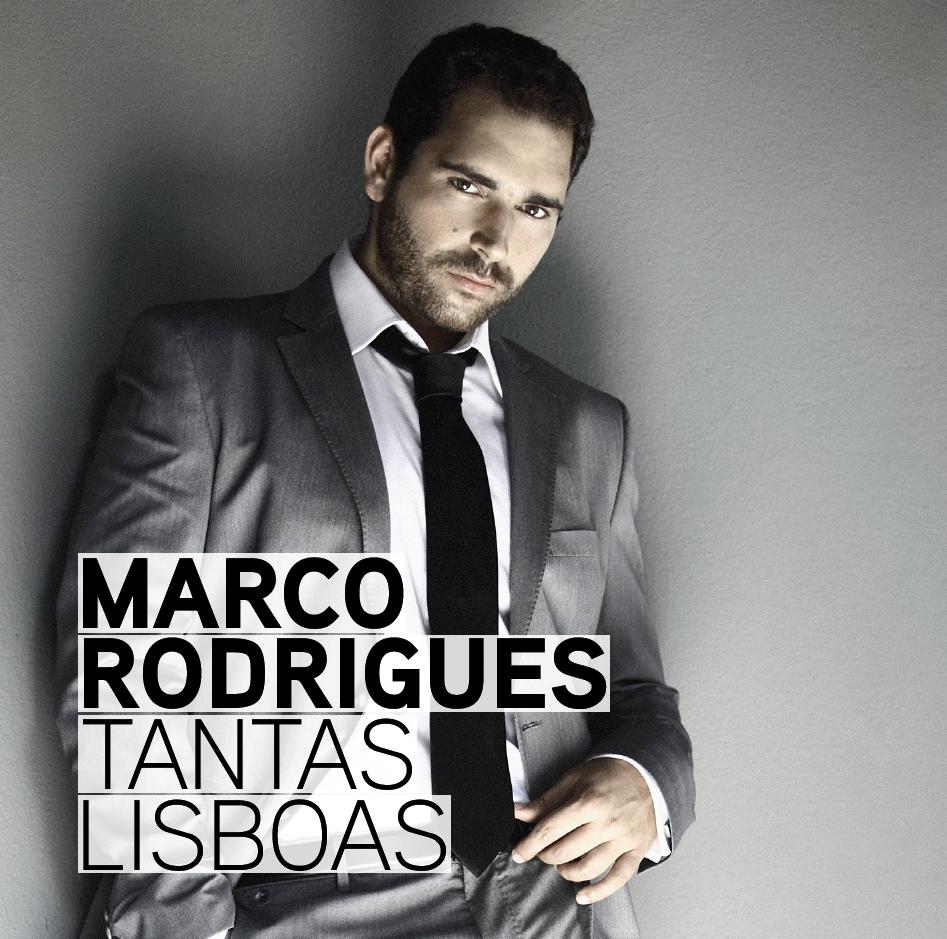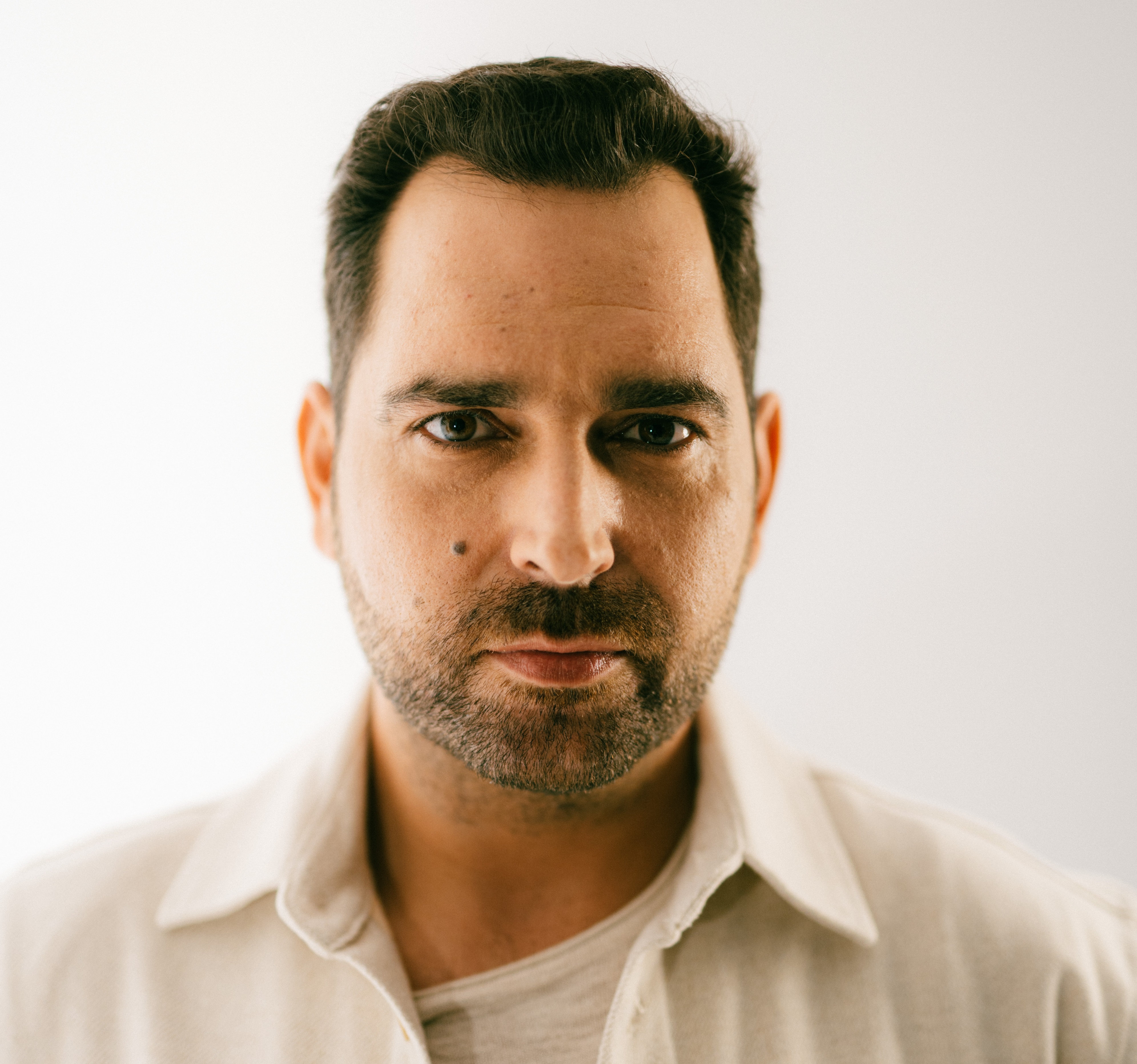Know more:
Marco Rodrigues
(N. 19 September, 1982 - M. September, 1982)Until the age of fifteen, Marco Rodrigues only knows that Fado is a musical genre and that its greatest Diva is Amália Rodrigues. Fate brings Fado into his life when he moves from the north of Portugal to Lisbon. And his whole life changes…
Marco Rodrigues spends His childhood and adolescence without any connection to Fado though always in contact with other musical genres. But fate takes him to Fado –he participates in Grande Noite do Fado 1999 in Lisbon Coliseum and despite his young age, he wins the Senior category.
A few months later, Marco Rodrigues debutes as a professional Fado singer at Café Luso in Lisbon – where he is still a resident singer and guitarist, as well as the artistic director.
One year after the release of his first album – “Fados da Tristeza Alegre”, Marco Rodrigues receives the 2007 Amália Rodrigues Award in the Revelation category.
Marco Rodrigues records “O Tempo a Cantar” (original theme by Fernando Alvim included in the album “Fados e Canções do Alvim”), by invitation of Fernando Alvim himself – a famous classic guitarplayer that performed along with Carlos Paredes for decades – and is also invited to perform in a special concert Fernando Alvim & Guestsheld at Casa da Música, Oporto.
In 2010, Marco Rodrigues releases his second album – Tantas Lisboas (label Universal Music Portugal) featuring Carlos do Carmo and Mafalda Arnauth and the composers and lyricists are Boss AC, Tiago Torres da Silva, Inês Pedrosa and Tiago Machado, who also signed the production of the album. In Tantas Lisboas Marco Rodrigues sings his passion for… Lisbon.
“Tantas Lisboas” presents some classics like the legendary “Fado do Estudante” (performed by the actor Vasco Santana in the film “A Canção de Lisboa”, 1933) and many originals like “Rapsódia do fado que ninguém quer” which puts together some traditional Fados in one song (rhapsodies have fallen in disuse among Fado singers), and also includes two songs composed by Marco Rodrigues himself (“Onde Vou” and “O Inverso do Fado”).
Naturally Lisbon is present in many songs of this album. Marco Rodrigues highlights “O Homem do Saldanha” – a duet with Carlos do Carmo which he is very proud of – lyrics by Boss AC and music by Tiago Machado.
Besides Boss AC other two contemporary poets give an important contribution to Marco Rodrigues’ mostrecent album: Inês Pedrosa (Em “Água e Sal”) and Tiago Torres da Silva (“A Rima Mais Bonita”; “Tantas Lisboas”; “Rapsódia do Fado que Ninguém Quer” and “Valsa das Paixões”): “I only met Inês Pedrosa when Tiago Machado invited me to take part in the Portuguese Song Festival. Elvis Veiguinha asked Inês Pedrosa to write the lyrics. Meeting her was a wonderful experience and I like the way she portrays Portugal and its achievements in that song. Tiago Torres da Silva is a poet with a particular sensitivity to write Fado. Sometimes there are lyrics which have to be adjusted to the singer because of diction or even because the singer doesn’t feel comfortable singing themes they were written, but there was never the need to adjust any of Tiago Torres da Silva’s lyrics.”
One year after “Tantas Lisboas” debut concert, and after presenting the new album from the north to the south of Portugal, Marco Rodrigues returns to Lisbon for his first concert in a major venue and invites Fernando Alvim, Mafalda Arnauth, Tiago Machado and Micael Gomes for his concert at Trindade Theater, on October 28th 2011.
In August 2011, Marco Rodrigues travels to Rio de Janeiro by invitation of the famous Brazilian singer, Maria Gadú to record a duet on her new album. “Mais uma Página”, released on December 2011 in Brazil, presents Maria Gadú and Marco Rodrigues duet –“A Valsa”.
On December 2, 2011, Marco Rodrigues joined the cast of fado singers who performed at the Fado Património da Humanidade, a show commemorating the distinction of Fado as Intangible Cultural Heritage of Humanity, awarded by UNESCO at the end of November of the same year.
Marco Rodrigues is responsible for the opening concert of Maria Gadú's shows, in the coliseums of Lisbon and Porto, in May 2012, receiving the most complimentary comments from the critic. That same year, he took on the role of artistic director of Adega Machado, one of the best known fado houses in Lisbon, where he was also part of the resident cast.
In addition to the album he had previously edited, there is also "EntreTanto" (2013), "Fados do Fado" (2015) - with a repertoire entirely of male fado singers and which was nominated for a Latin Grammy - and "Copo Meio Cheio" (2017).
Source:
www.myspace.com/marcorodrigues
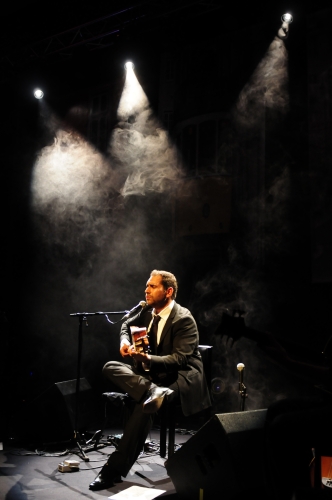
Marco Rodrigues. Arcos de Valdevez, 9 de Julho 2011. Foto de Carlos Mateus de Lima
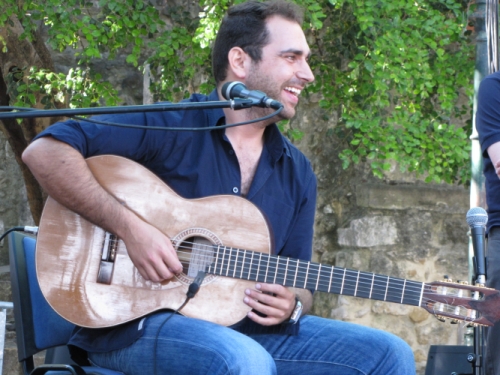
Marco Rodrigues. Festa do Fado, Castelo de São Jorge, 10 de Junho 2011. Foto de Inha
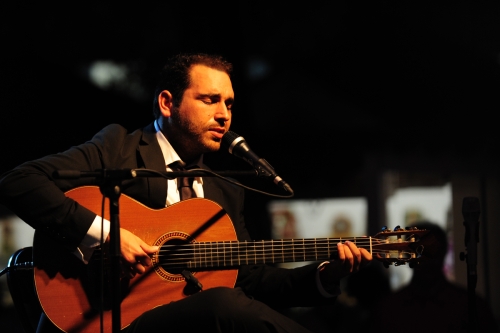
Marco Rodrigues. Feira de Artesanato do Estoril, 29 de Julho 2011. Foto de Carlos Mateus de Lima
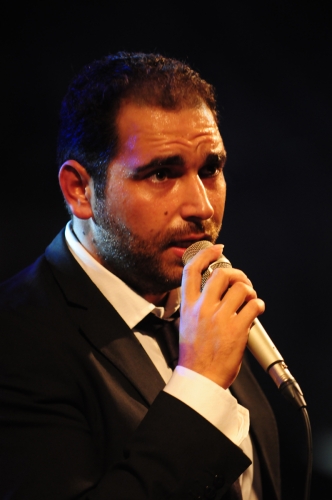
Marco Rodrigues. Feira de Artesanato do Estoril, 29 de Julho 2011. Foto de Carlos Mateus de Lima
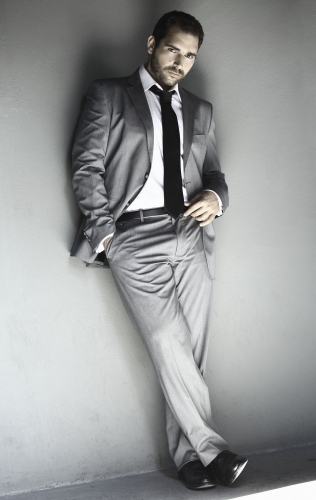
Marco Rodrigues, Disco "Tantas Lisboas", 2010
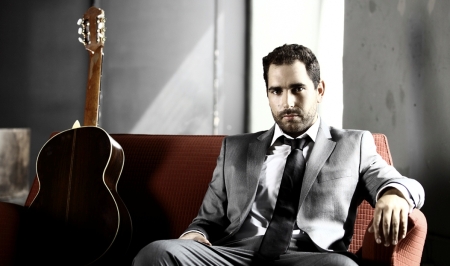
Marco Rodrigues, Disco "Tantas Lisboas", 2010
-
O Homem do Saldanha Marco Rodrigues (Boss AC)
